Overcoming The Past
Amidst growing security concerns, Japan is strengthening ties not only with its official ally, the United States, but also likeminded countries like the United Kingdom and Australia.
Australia in particular has now become Japan’s most important partner next to the US and the relationship between both nations are now considered as a “quasi-alliance.”
Despite such close relationship, the bond between Japan and Australia was not always so strong, especially in the immediate post-war period.
This was mostly due to the Japanese threat towards Australia during WW2, including air raids on the northern city of Darwin and the Japanese occupation of neighboring Indonesia.
Such experience left a stain on the bilateral relation and Australia’s sense of awareness against Japanese militarism persisted even after the war, leading to a genuine fear towards postwar Japan’s resurgence.
Initially, Australia was concerned that Japan might turn “red” and align with communist China in hopes of establishing a communist sphere across the Asia-Pacific region.
This was later aimed towards Japanese military buildup after witnessing Japan’s economic miracle throughout the 1960s〜1970s. In Canberra’s eyes, Japan’s rapid economic growth meant that it had the potential to acquire a formidable military force – a possible scenario that reminded Australia of its past nightmare.
As such, Australia’s deep-rooted anxiety continued for quite a long time since it stemmed from a traumatizing past experience, but as China’s military expansion became evident in the 2010s, Canberra shifted to forming a quasi-alliance with Tokyo in order to counterbalance China.
Though Australia has not completely let its guard down (as in the case with any country), a present day Japanese aggression is hardly imaginable.
From Camberra’s perspective, the main concerns are undoubtedly an expanding China and Indonesia, with the latter located just across the ocean with a massive population of 280 million and considerable potential.
Sure, Japan still has one of world’s strongest economy and military, but it is one of the few dependable partners in countering China and is also viewed as a fellow member of the free democratic world.
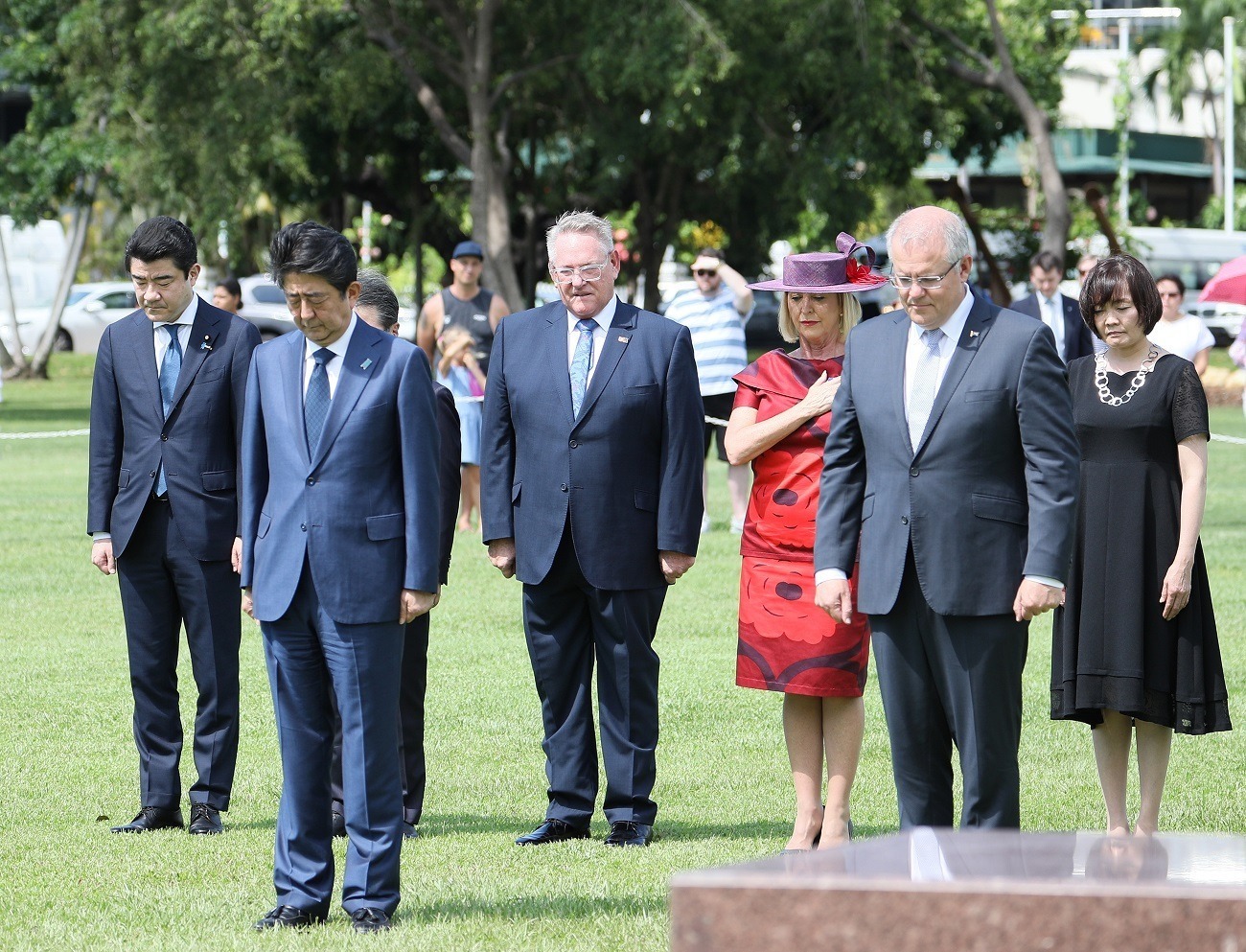 PM Abe’s visit to the war memorial in Darwin (photo: Cabinet Office)
PM Abe’s visit to the war memorial in Darwin (photo: Cabinet Office)
If we examine postwar Japan’s pacifist approach, it is quite obvious that Tokyo has no appetite for another military adventure.
Such track-record has been effective in gradually alleviating Australia’s alertness towards Japan, and the recent rapprochement was cemented by the late Prime Minister Abe.
His vision of a “Free and Open Indo-Pacific” played a crucial role in achieving strategic alignment with Australia, and the effort to overcome the past, such as addressing the Australian Parliament and the visiting war memorials, has greatly contributed to post-war reconciliation.
While there still may be some level of wariness towards Japan, it no longer poses a significant obstacle to the Japan-Australia quasi-alliance.
What To Expect Next?
Japan and Australia have been accelerating their quasi-alliance effort by signing various security agreements, including the Acquisition and Cross-Servicing Agreement (ACSA), the Information Security Agreement (ISA), the Defense Equipment and Technology Transfer Agreement, and the Reciprocal Access Agreement (RAA) which is aimed to streamline procedures for joint training exercises.
Upon these agreements, joint training exercises between the two militaries have become the new normal, and there are plans to temporarily deploy Japanese fighter units to Australia and establishing information-sharing mechanisms.
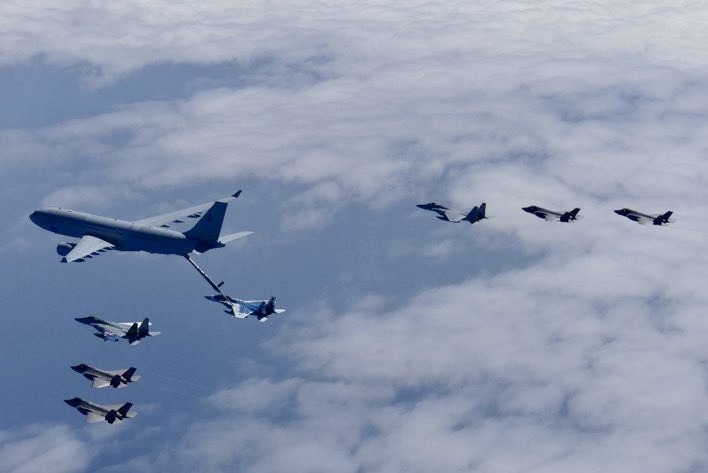 Japanese and Australian air force in formation (photo: JASDF)
Japanese and Australian air force in formation (photo: JASDF)
So, the real question is “how far will this security cooperation go?”
Forming an official alliance by signing a formal treaty remains challenging, especially on the Japanese side since it would reignite constitutional debates regarding Article 9 and the use of collective self-defense.
Technically, Japan cannot exercise collective self-defense towards Australia. But, the current interpretation set out by the Abe Administration has allowed the Self-Defense Forces to defend Australian forces to a certain extent.
Hence, although Japanese forces remain hamstrung by legal restrictions, they are able to exercise collective self-defense for US and Australian forces if the situation calls for it.
Nonetheless, the inability to exercise full-scale collective self-defense is a liability for any military alliance and it is fair to say that Japan is not ready for a formal alliance with Australia.
A formal alliance would require parliamentary approval from both sides, significantly raising the political hurdle and complexity of procedures. On the other hand, the current method of incrementally solidifying the quasi-alliance appears more pragmatic and can certainly achieve results.
That being said, Australia has been seeking the possibility of Japan’s participation in AUKUS, the military alliance with the US and UK. Both Japan and AUKUS has already agreed to cooperate on developing new military technology, but Australia seems to be eager for Japan’s full participation.
As fellow US allies, it is only natural for Japan, which also has a quasi-alliance with the UK, to join the AUKUS alliance. Both the US and UK are more than likely to welcome Japan’s participation as it would benefit all parties involved.
Joining the AUKUS partnership would be beneficial for Japan as well, but the Japanese government prefers to quietly promote the current quasi-alliance as it faced serious protests during the 2015 security legislation which enabled the limited use of collective self-defense.
However, Japan is set to be deeply involved in the AUKUS alliance and the prospect of “JAUKUS” is not unrealistic at all, considering the deteriorating security environment.
Whether the quasi-alliance between Japan and Australia can evolve to the next stage is mostly up to the former’s determination, but so far the bilateral relation is bound for “more than a quasi-alliance, less than an alliance.”



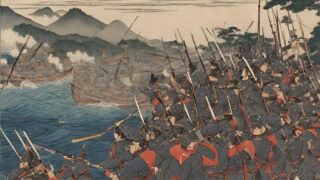

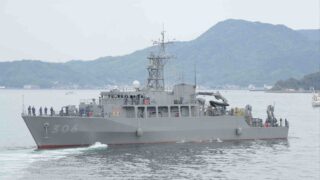
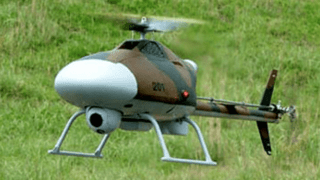

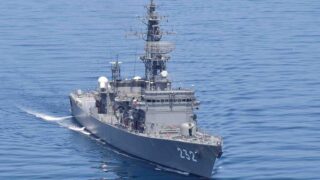
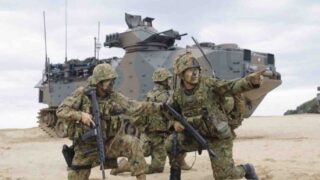


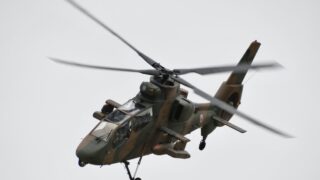
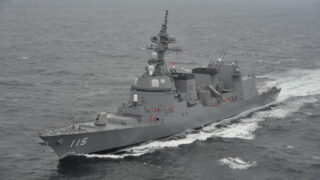
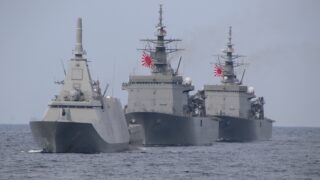

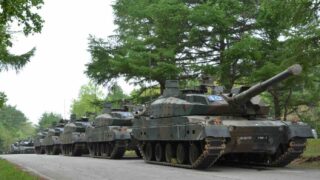
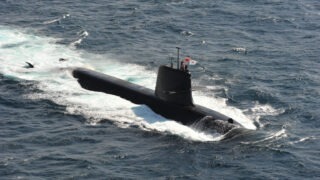


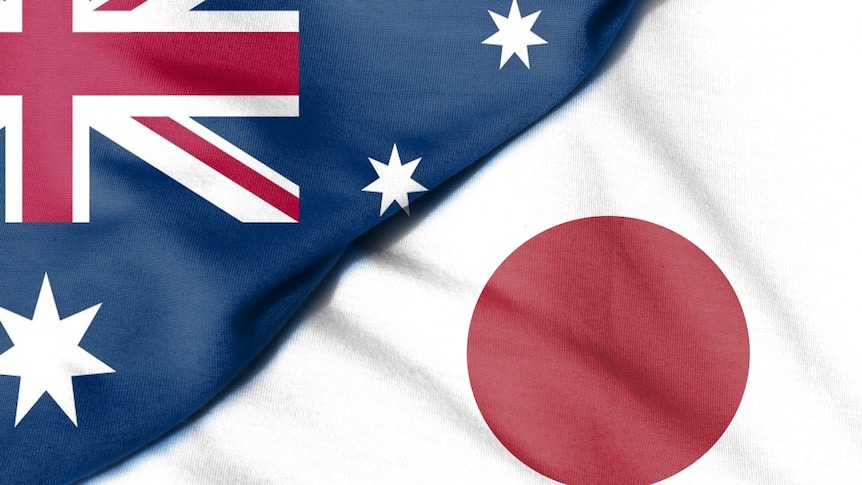
Comments